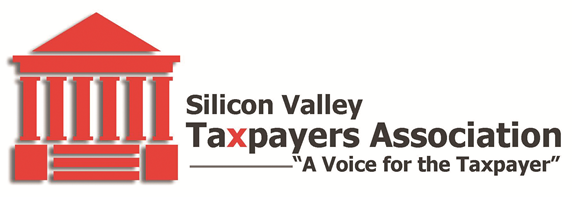-
-
-
Elections
-
-
-
-
-
-
-
-
-
-
-
-
-
-
-
-
-
-
-
-
-
-
-
-
-
-
-
-
-
SJ proposes half-cent sales tax [SJ Mercury News; 6/26/12]
-
-
-
-
-
-
-
-
-
-
-
-
-
-
June 26, 2012
San Jose Mercury News
San Jose proposes half-cent sales tax
By John Woolfolk
[This article is also posted at the Web site of the San Jose Mercury News, here.]
SAN JOSE -- City officials Wednesday recommended a 15-year half-cent sales tax measure for the November ballot that would raise up to $64 million annually while saddling residents, businesses and shoppers with the highest sales tax rate in the county and among the highest in the state's largest cities.
The City Council will consider the recommendation from Ed Shikada, San Jose's assistant city manager, at its Aug. 7 meeting. Santa Clara County officials that day will consider their own eighth-cent countywide sales tax for the same ballot, which also will include the governor's proposed four-year quarter-cent statewide sales tax increase.
If voters were to approve the proposed city, county and state measures,
San Jose's sales tax would jump from 8.375 to 9.25 percent, among the highest in California and throughout the country.
The recommendation quickly drew fire from taxpayer advocates and business leaders.
"There are many places for the city to cut expenses before they need to ask the public for more tax dollars," said John Roeder, president of the Silicon Valley Taxpayers Association. Matthew Mahood, president of the San Jose Silicon Valley Chamber of Commerce, said the business group hasn't taken a formal position yet but would likely be opposed.
"Right now, we just don't need another additional burden that would prevent people from doing business in the city of San Jose," Mahood said.
Shikada's recommendation for a half-cent sales tax came after a new round of city polling this month suggested public support despite a host of competing tax measures.
Though surveys showed greater support for a quarter-cent sales tax with a shorter life span, Shikada argued that a measure generating half as much revenue wouldn't go far enough to restore public services such as libraries, roads, and police and fire protection that have been deeply cut by a decade of budget deficits.
But Mayor Chuck Reed, who has urged support for other tax measures since taking office, wasn't keen on putting a sales tax before voters in November. He said the polling results showed weak support at best, and no well-funded group has stepped forward to lead a successful tax campaign against likely opposition. What's more, a key fiscal reform measure he championed in June to trim the city's growing employee pension bill remains under a cloud of union court challenges.
"The fiscal reforms need to come first," Reed said. "Right now the fiscal reforms are being challenged, so I think it's not a good idea."
Councilwoman Nancy Pyle, a swing vote who has urged the city to boost revenues, was also cool to the idea of putting a sales tax measure on the November ballot and said the city should instead try to boost revenues by spurring the local economy and tourism.
"We have to look at other ways to bring in revenue," Pyle said.
In the latest round of polling, city contractor Fairbanks, Maslin, Maulin, Metz and Associates surveyed 800 likely city voters from July 8 through July 12. It found 62 percent would initially support a half-cent sales tax and 61 percent would vote for a quarter-cent tax, a seemingly comfortable margin for a general tax requiring only majority approval.
But after hearing about competing measures and opposition arguments, support dropped to 54 percent for a half-cent tax and 57 percent for a quarter-cent tax. Of the 54 percent who still said they would support a half-cent tax, 11 percent were largely undecided and only leaning toward approval. The margin of error was 4 percentage points.
Reed said that wasn't enough support for the city to risk the estimated $345,000 it would cost to put the measure on the ballot.
Since Reed took office, San Jose has won voter approval for a telephone line tax that had been imposed as a temporary fee in 2005, an expansion of an existing telephone utility tax, an increase in the city card room tax and a tax on marijuana businesses.
The city's general revenues, which pay for basic services, have fallen from a high of $721 million in 2008 to about $695 million in 2012, though they remain higher than the $583 million in 2002. Sales tax revenue has similarly dropped from a high of $154 million in 2008 to about $141 million in 2012, though it remains higher than the $138 million in 2002.
Campbell's sales tax rate of 8.625 percent is currently the highest in Santa Clara County. The rate is 7.75 percent in San Diego and Sacramento, 8.5 percent in San Francisco, 8.75 percent in Oakland, Long Beach and Los Angeles and 9.25 percent in Union City and El Cerrito.
SALES TAX RATES
Sales tax rates in Santa Clara County:
San Jose and other cities: 8.375 percent.
Campbell: 8.625 percent.
San Jose with proposed 1/2-cent sales tax increase: 8.875 percent.
Sales tax rates in other cities:
San Diego, Sacramento: 7.75 percent.
San Francisco: 8.5 percent.
Oakland, Long Beach, Los Angeles: 8.75 percent.
El Cerrito, Union City: 9.25 percent.
Contact John Woolfolk at 408-975-9346. Follow him on Twitter at Twitter.com/johnwoolfolk1.
